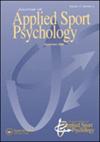A framework for mental training in sport: Enhancing mental skills, wellbeing, and performance
IF 2.7
2区 心理学
Q2 HOSPITALITY, LEISURE, SPORT & TOURISM
引用次数: 0
Abstract
AbstractFrameworks that illustrate the comprehensive process of mental training have provided a “big picture” of the provision of applied sport psychology services. The purpose of this article is to propose an updated framework for mental training in sport. The revised framework includes four categories of mental skills including personal foundation, performance, personal development, and team skills. Mental health, as represented by emotional, psychological, and social wellbeing, is also included in the framework as a major focus for applied work by mental performance consultants, not just clinical mental health providers. The flow of the framework suggests that the consultant’s philosophy and skills in using various models, strategies, and techniques, coupled with athlete commitment, can enhance athletes’ mental skills and mental health to enhance performance and other significant outcomes. Suggestions for future work in mental training in sport include research examining the role of mental health in mental skills development, implementation of mental health enhancement programs, periodized approaches to sport psychology service delivery, and a renewed focus on intentionality in athletes to build mental skillfulness over time and situations for an adaptive, agile mindset.Lay summary: Mental training is a process in which athletes, usually with the help of consultants or coaches, systematically use strategies and techniques to build mental skills and wellbeing to enhance their performance, development, and experiences in sport. Enhancing mental health in athletes is an important objective for mental performance consultants.IMPLICATIONS FOR PRACTICEConsultants base their service delivery on a foundational philosophy and model of practice, from which they utilize and integrate various mental training strategies and techniques.Mental skills are learnable psychological capabilities that facilitate individuals’ success in life pursuits.Mental health focuses on athletes’ wellbeing and how much they are flourishing; it is not merely the presence or absence of mental illness. Disclosure statementThe author reports there are no completing interests to declare.运动中的心理训练框架:提高心理技能、健康和表现
摘要说明心理训练综合过程的框架为提供应用运动心理学服务提供了“大图景”。本文的目的是提出一种更新的运动心理训练框架。修订后的框架包括四类心理技能,包括个人基础、绩效、个人发展和团队技能。以情感、心理和社会福祉为代表的心理健康也被纳入框架,作为心理表现咨询师应用工作的主要重点,而不仅仅是临床心理健康提供者。该框架的流动表明,咨询师在使用各种模型、策略和技术方面的理念和技能,加上运动员的承诺,可以提高运动员的心理技能和心理健康,从而提高成绩和其他显著成果。对未来运动心理训练工作的建议包括研究心理健康在心理技能发展中的作用,实施心理健康增强计划,运动心理学服务提供的阶段性方法,以及重新关注运动员随着时间和环境的变化而建立心理技能的意向性,以适应敏捷的心态。总结:心理训练是运动员通常在顾问或教练的帮助下,系统地使用策略和技术来建立心理技能和健康,以提高他们的表现、发展和运动经验的过程。提高运动员的心理健康水平是心理咨询师的重要目标。对实践的启示咨询师将他们的服务建立在实践的基本理念和模式上,从中他们利用和整合各种心理训练策略和技术。心理技能是一种可学习的心理能力,有助于个人在生活追求中取得成功。心理健康关注的是运动员的健康状况以及他们的健康程度;这不仅仅是精神疾病的存在与否。披露声明作者报告没有完整的利益需要申报。
本文章由计算机程序翻译,如有差异,请以英文原文为准。
求助全文
约1分钟内获得全文
求助全文
来源期刊
CiteScore
6.90
自引率
9.40%
发文量
39
审稿时长
>12 weeks
期刊介绍:
The Journal of Applied Sport Psychology (JASP) is a refereed journal designed to significantly advance thought, theory, and research on applied aspects of sport and exercise psychology. Submissions such as experimental studies, qualitative research, correlational studies, case studies, position papers, critical reviews, theoretical developments specific to applied research conducted in sport and/or exercise settings, or having significant applied implications to sport and exercise, are appropriate content for the JASP. Please see the recent Editorial for further details on the aims and scope of the journal. JASP is a non-proprietary journal that is an official publication of the Association for Applied Sport Psychology (AASP). The purpose of AASP is to promote the development of psychological theory, research, and intervention strategies in sport and exercise psychology. The Journal is a direct benefit of membership in AASP and is received by its student and professional members. The publisher of the JASP is Taylor and Francis, Inc. of Philadelphia, PA.

 求助内容:
求助内容: 应助结果提醒方式:
应助结果提醒方式:


